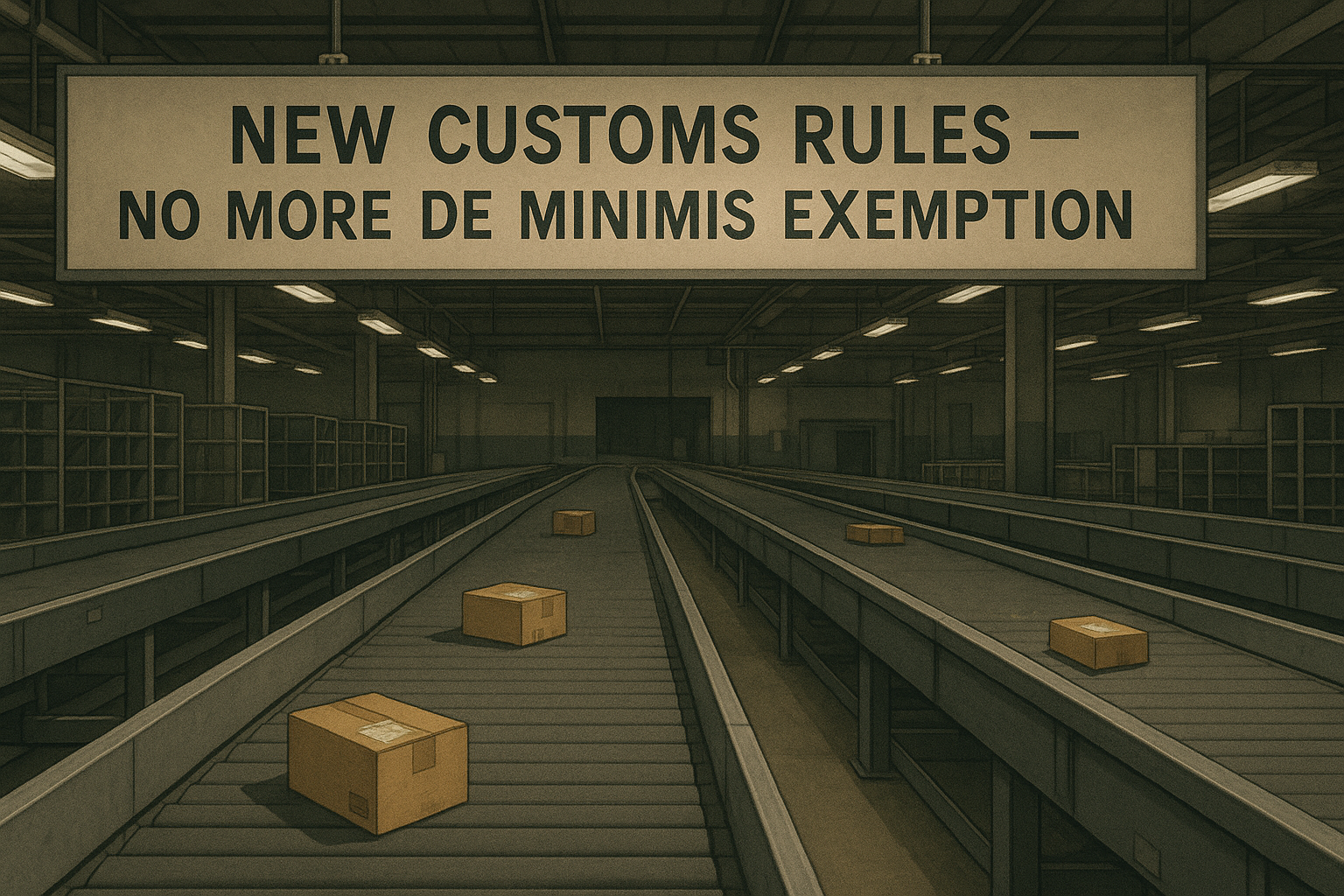The numbers are in, and they're brutal. Just a handful of weeks after the Trump administration slammed the door on the de minimis exemption for low-value imports, U.S. postal traffic has apparently cratered by a jaw-dropping 81%.
Let me put that in perspective — that's not a dip, it's a cliff dive.
For those who haven't been tracking the minutiae of customs regulations (and honestly, who could blame you?), the de minimis rule was this lovely little carve-out that let packages valued under $800 skip into America without paying import duties. It was basically a VIP pass for half of what China manufactures, delivered straight to your doorstep, no awkward questions about tariffs.
The change hit like a thunderclap.
I've been watching the e-commerce space for years, and nothing — absolutely nothing — has created this kind of overnight disruption. Chinese marketplaces like Temu and Shein, whose entire business proposition was essentially "dirt cheap stuff in tiny boxes," are now scrambling to rewrite their economic playbooks on the fly.
This isn't just a policy tweak. It's surgery without anesthesia.
What's fascinating (in that car-crash-you-can't-look-away-from kind of way) is how this single regulatory adjustment has exposed the elaborate scaffolding built around what was, fundamentally, a tax loophole. We've accidentally pulled back the curtain on a shadow economy that was operating in plain sight. For years, billions in American consumer dollars have been flowing through this regulatory gap.
A colleague who covers logistics told me yesterday, "It's like someone just discovered that half the economy was running on a technicality." Couldn't have put it better myself.
The ripple effects? Massive. Small countries whose postal services had somehow become e-commerce juggernauts are watching their mail volumes vanish. Distribution centers in places like Kentucky — which had become unlikely hubs in this global game of regulatory arbitrage — are suddenly ghost towns.
(I visited one such facility last year, bustling with workers. Wonder what it looks like now.)
The corporate communications around this have been... entertaining. You know how it goes. "We are strategically realigning our international shipping protocols to accommodate evolving customs frameworks" is executive-speak for "Our entire business model just got kneecapped."
Look, there are legitimate policy questions at play here. The de minimis exemption started out innocently enough — a practical acknowledgment that it wasn't worth the paperwork to collect minimal duties on tiny packages. Nobody anticipated it would become the foundation for billion-dollar businesses.
So what happens next? Will this dramatic drop in postal traffic be permanent, or just a chaotic adjustment period before new patterns emerge? Three possibilities:
Consumers simply pay more for the same products. Companies establish more U.S.-based distribution. Or — and this is where my money's at — clever folks will invent entirely new workarounds.
If there's one thing I've learned covering international trade for a decade, it's that capital is relentlessly creative. Today's insurmountable barrier has a funny way of becoming tomorrow's business school case study in adaptation.
Meanwhile, domestic retailers who've spent years grumbling about competing with duty-free imports are watching with barely concealed glee. Walmart and Amazon might be the silent winners here — they've built logistics networks that don't hinge on this particular loophole.
The irony is thick enough to cut with a knife. A policy supposedly designed to protect American businesses has created immediate chaos for... American workers. The people who sorted, handled, and delivered all those packages are real people with real jobs. Creative destruction always sounds better in economic textbooks than it feels in real communities.
What's certain is that removing a single regulatory provision has revealed just how much of our economy was built on a foundation that looks, in hindsight, remarkably flimsy.
Which, when you think about it, is pretty much the story of global trade these days. One small rule change, and entire business empires tremble.
I'll be tracking how this plays out in the coming months. My guess? We haven't seen the last innovative response to this challenge. The game has changed, but it's far from over.
